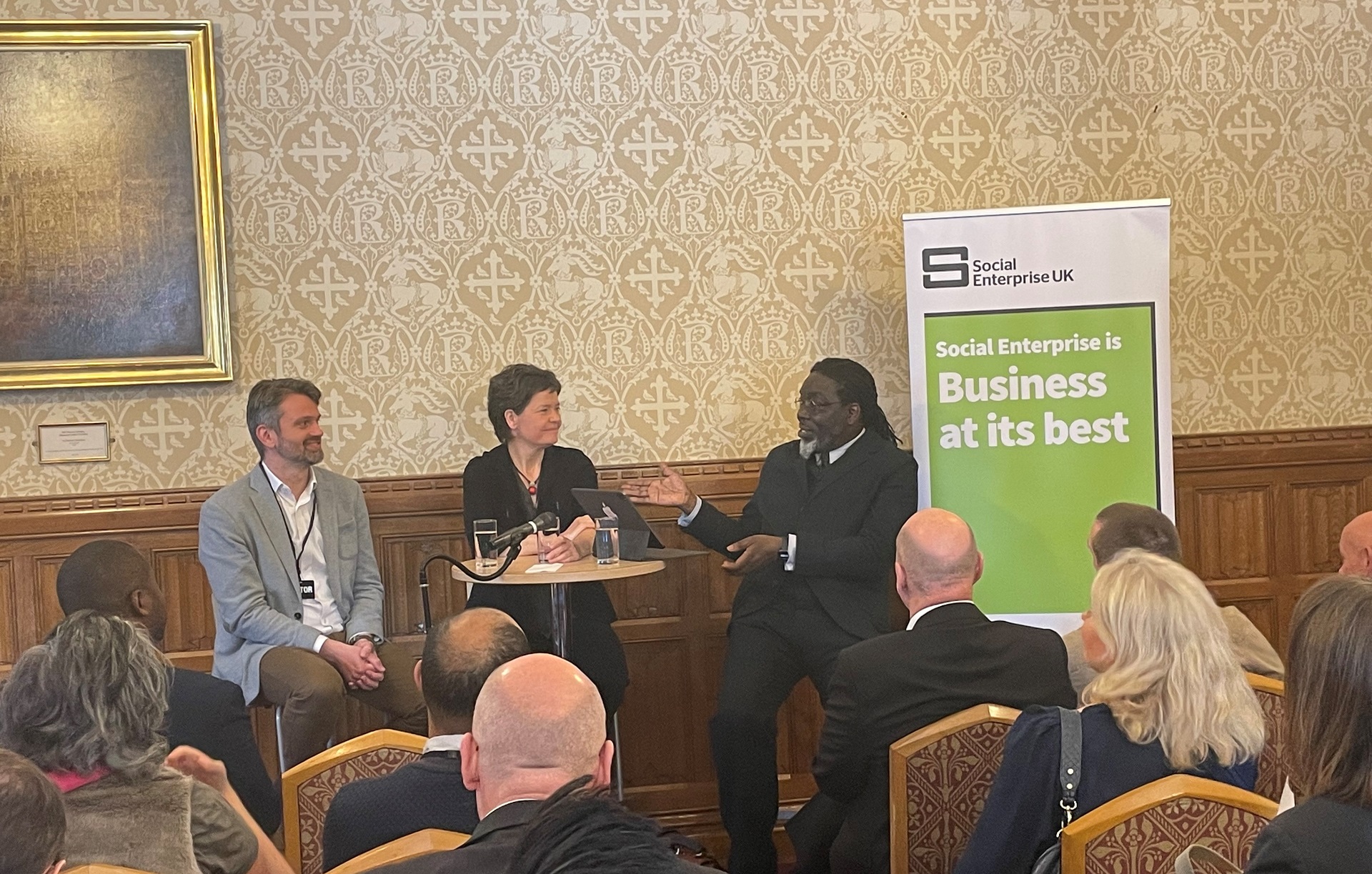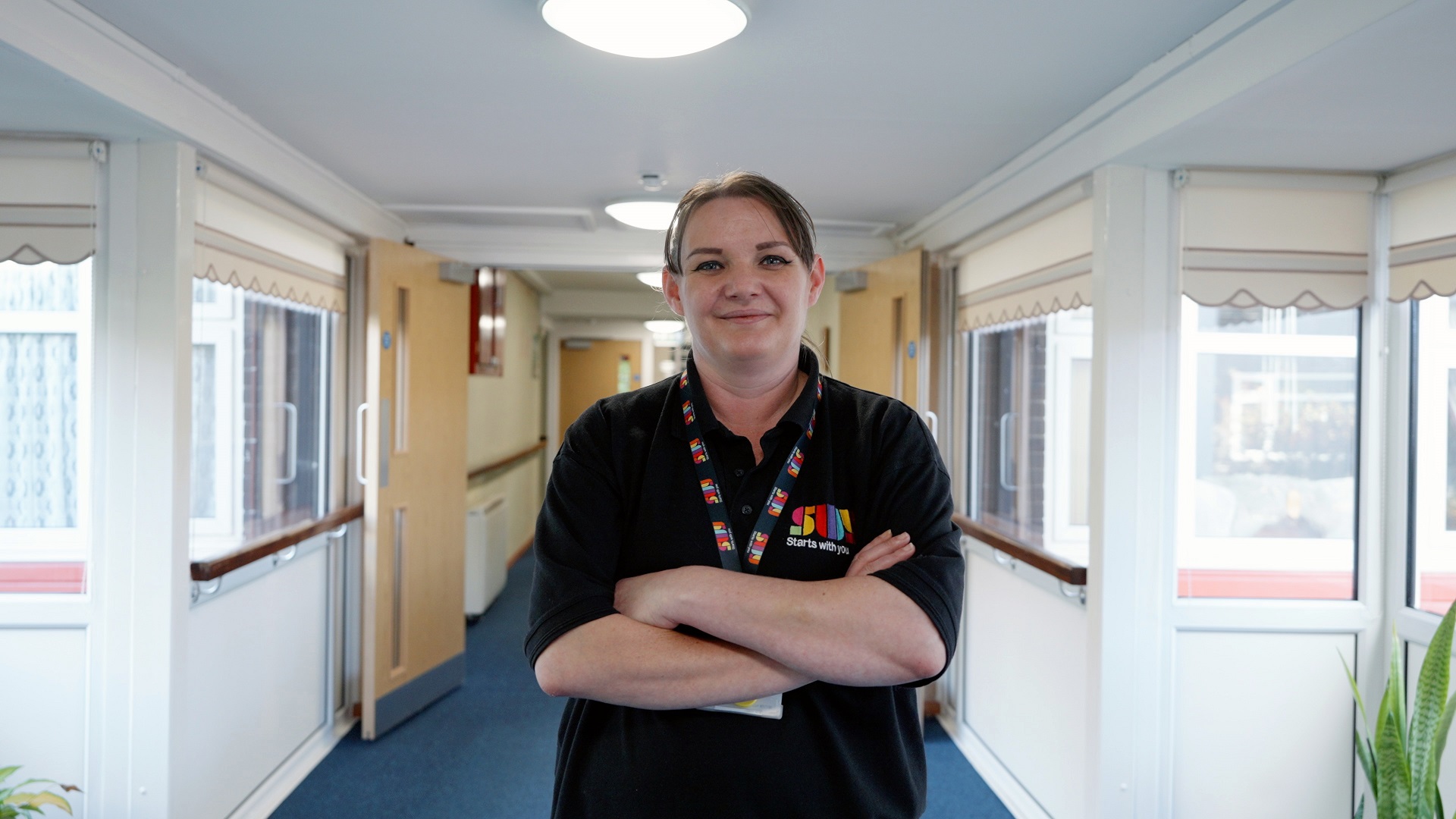
News
Social enterprise champions developing new Business Plan for Britain
On Wednesday 24 May Social Enterprise UK (SEUK) brought colleagues, partners, peers and collaborators from across the sector together with politicians and policymakers in the House of Lords to discuss how British business can deliver better for our economy and society. With a general election approaching, now is the time to push for progress and make the case for a different way of doing business - one that centres the incredible work being caried out by the tens of thousands of social enterprises, cooperatives, community companies and other purpose-led businesses which are delivering for Britain. Opening the event, SEUK’s chair Lord Victor Adebowale explained: “We are significant, and yet we don’t have the voice that we should have for the major contributions we make to the current economy and all we could do in the future.” He set the scene for the challenges facing the UK economy, as widening inequality and the climate crisis transcend political divisions, making a rallying cry for all parties to address the fundamental structures of how we do business in order to address these burning issues. He issued an invitation and a challenge to raise the profile of the transformative impact of social enterprises and other mission-led businesses, which renowned economist Kate Raworth then argued must be at the heart of political and economic discussions. Changing business structures ‘Doughnut Economics’ author Kate Raworth proposes a radically different way of approaching the economy, moving from a system based on endless growth to one that meets the needs of all people within the means of the living planet. She said: “The aim is to create a safe and just space in which humanity can thrive, and to get there requires a fundamental rewiring of the economy and the way in which businesses themselves are structured.” In conversation with Victor, Kate posed the question of how businesses should be owned and designed in order to serve the needs of people and planet – and, in many ways, the answer to this could be found in the organisations represented in the room. Social enterprises, co-operatives and other purpose-driven business models offer the proof of concept needed for a new economy. Presenting the ongoing crisis of inequality and climate breakdown as an opportunity to show people the possibility of a different future, Kate urged: “Let’s make this visible, seed it and spread it and help people see: this is a not just viable but a crucial way of redesigning our economy in service of the future.” Kate was joined by her Doughnut Economics Action Lab (DEAL) colleague Erinch Sahan, whose work looks at challenging the deep design of business. He outlined how traditional models of ownership, governance and profit distribution place businesses in a straitjacket, with everything reliant on financial returns and maximising shareholder value – while social enterprise offers more diverse structures and innovative ways of working. He concluded that: “Social enterprise is the experimentation ground for those ideas that will hopefully take root in wider business and the future of the world economy.” Join the campaign This event kicks off a new campaign to shape the future of the British economy, bringing together champions of change from across business sectors and political spectrums, to elevate the profile of our growing movement through until the next election and beyond. As we get closer to 2023’s general election, we will ramp up activity to ensure that politicians, policy-makers and other key decision makers hear the voices of organisations that offer real solutions to build a fairer and more equitable country. Join our campaign and help us transform the potential of British business. More information can be found here >> https://www.socialenterprise.org.uk/business-plan-for-britain/ Thank you to all the organisations, MPs and Peers who attended this event and especially to our campaign partners:
3 min







